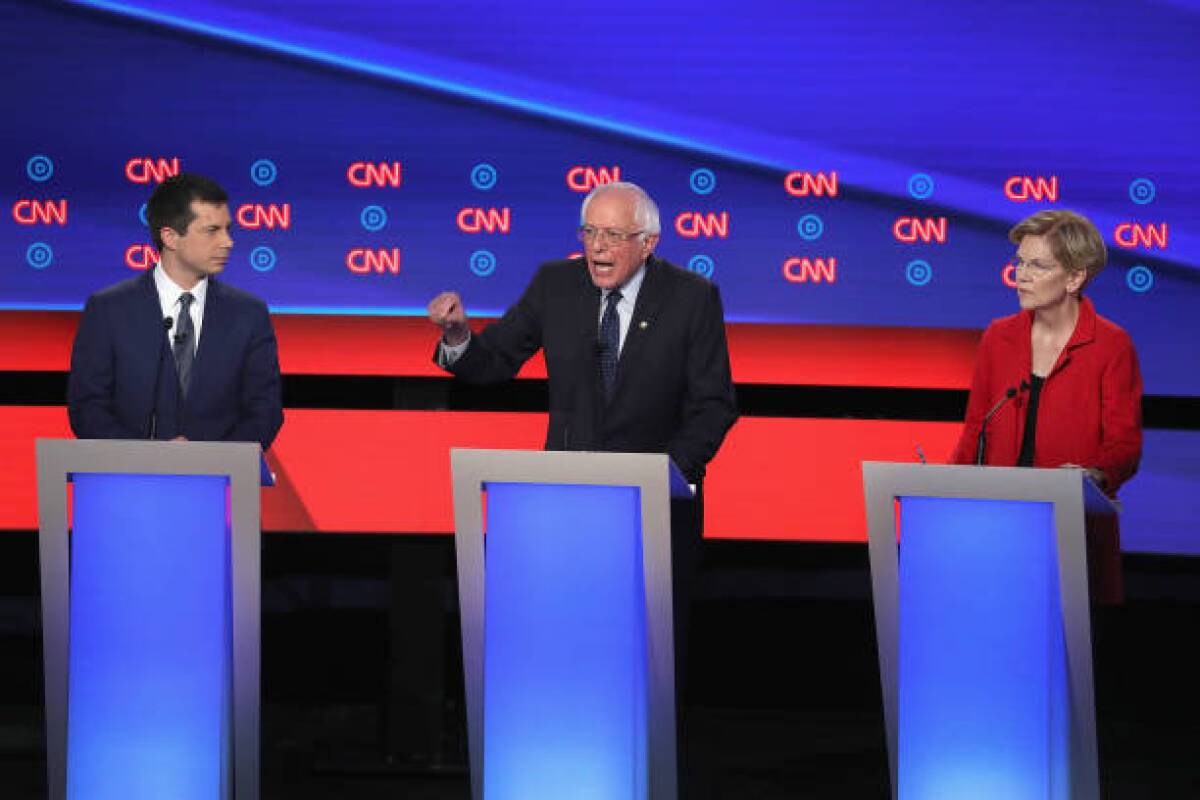California’s campaign watchdog reverses course, won’t allow its leaders to donate to politicians

- Share via
SACRAMENTO — California’s campaign watchdog panel reversed itself Thursday and restored a rule prohibiting its members from giving to federal political candidates, citing concerns that its suspension of the restriction in September undermines an appearance of nonpartisanship crucial to its mission.
The Fair Political Practices Commission faced public backlash over the Sept. 19 decision to suspend the policy restricting donations pending a legal opinion from the state attorney general on whether it violates the 1st Amendment rights of commissioners. FPPC Chairman Richard Miadich proposed Thursday to reinstate the rule, saying he believed the panel’s members “should refrain from federal campaign contributions while we are commissioners.”
The FPPC also voted to remove Commissioner Brian Hatch from the panel’s Law and Policy Committee, which he chairs, after The Times reported that Hatch had donated to the presidential campaign of Vermont Sen. Bernie Sanders before the rule was suspended.
Commissioner Frank Cardenas told his fellow commissioners that the FPPC must be seen as an impartial watchdog over campaigns and said the recent controversy has undermined that perception. He noted that the panel has been criticized in letters from the public and newspaper editorials for suspending the rule.
“This body’s willingness and even ability to do that has been questioned in the last several weeks and that’s wrong,” Cardenas said. “That has just got to be understood as being an abomination. It is not our place to bring this kind of disrepute onto this body.”
In a letter to his colleagues, Cardenas added that the controversy goes to the core of the FPPC’s mission.
“The essence of the questions concerning the commission’s decision to suspend the prohibition center around a question of the commission’s impartiality and nonpartisanship,” Cardenas said.
In one email to the FPPC, retired Los Angeles attorney Jane Goichman singled out Hatch’s decision to contribute to a campaign before the rule was lifted.
“Regardless what his 1st Amendment rights are, he should have and should now recognize that in accepting the position, it is imperative that the FPPC members not appear biased,” Goichman said. “If he felt that he could not accommodate the prior rule barring gifts to certain political candidates while he serves on the FPPC, he should have refrained from accepting the position.”
In another email, San Diego resident Chelo Diaz-Ludden wrote: “Shame on you for suspending your policy banning members from contributing to campaigns.”
Miadich began the FPPC’s monthly meeting Thursday with a statement that said he and other commissioners did not know Hatch had made contributions to Sanders at the time they voted to suspend the rule barring giving to federal candidates.
“We have a duty to be candid and transparent with each other and with the public as a whole. That is essential,” Miadich said. “We also have an obligation to adhere to our internal rules until we go through the correct processes to determine whether they are valid or not. Commissioner Hatch’s actions in September unfortunately fell short of those standards.”
In proposing to remove Hatch from the FPPC’s law committee, Miadich added, “These are not actions that I look forward to taking and quite frankly it’s sort of a sad day, but it’s something I feel like we have to do and I hope Commissioner Hatch will take this to heart.”
Hatch apologized to his fellow commissioners on Thursday for not disclosing his contributions to the Sanders campaign before they acted on his request to take up the rule suspension in September, but said he still believes his contributions are protected free speech under the U.S. Constitution.
He also disclosed Thursday that he had made more contributions than the two previously reported. He said he made a total of eight contributions to Sanders totaling $130 before the rule was suspended in September and another four contributions totaling $100 after the action.
“I still believe that the policy is not enforceable, but I do regret not informing the other commissioners because I kind of put them in an embarrassing position because of the action they took at the September meeting,” Hatch said. “I am not sorry I made the contributions because I think that my right to make those contributions is protected.”
Hatch, a Long Beach resident, is a former lobbyist for the California Professional Firefighters who was appointed to the FPPC in 2017 by Secretary of State Alex Padilla.
The panel also asked its staff Thursday to draft a rule requiring commissioners to publicly announce ex-parte communications on any issue before it is considered for a vote by the panel. Hatch was also criticized in 2017 for consulting privately with an attorney for state Senate Democrats while pursuing a revision of campaign laws that could help Democrats preserve their supermajority.
Miadich also called for the panel to ban commissioners from using cellphones during commission meetings and to require panel members to use official FPPC laptops and email accounts on commission business so information will be subject to public records requests.
“I think it sends the wrong message with regard to transparency to the public,” he said of using private emails and laptops for commission business.
More to Read
Sign up for Essential California
The most important California stories and recommendations in your inbox every morning.
You may occasionally receive promotional content from the Los Angeles Times.













